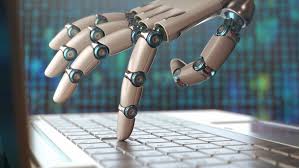Source – businessnewsdaily.com
There’s a lot of buzz in the tech industry, especially with cutting-edge technologies like artificial intelligence and machine learning becoming more mainstream. While many professionals understand that these technologies will make their jobs easier, or even take over certain tasks, there’s also a lot of confusion: machine learning, automation – what’s the difference between the two?
Machine learning vs. automation
Let’s start with machine learning, and back up just a bit. Machine learning is a subset of artificial intelligence (AI).
“It’s an evolution,” said Andreas Roell, chairman of AV Lab, a solutions consultancy dedicated to helping businesses successfully adopt AI. “AI fits into the bucket of workload analysis, or task analysis. Business intelligence also sits in that same bucket. It’s taking data, then analyzing it. Machine learning, on the other hand, is typically a later-stage development, where machines are taking in data on their own and then analyzing [it].”
The biggest difference: “Machine learning identifies data signals relevant for the future.”
Automation, on the other hand, is frequently mixed up with AI. Just like with AI, automation is designed to streamline tasks and speed workflows. But automation is solely fixed on repetitive, instructive tasks. Automation performs a job, and then thinks no further.
There’s a good chance you use automation today without realizing it – automating emails to customers, automating the way you generate invoices, automatically logging a helpdesk inquiry. Automating these monotonous tasks saves time and allows workers to focus on higher-priority initiatives. It’s a reliable, computerized workhorse, always showing up and getting the job done.
Machine learning takes these tasks and layers them in an element of prediction. Whereas automation would continue to do exactly as you requested – say, send invoices on a specific day – machine learning predicts when the invoices should go out, who did or did not receive one, when payments are on the verge of being late, and so forth.
Mimicking the human element
Machine learning works to understand data, to leverage what Roell refers to as data signals to drive future intelligence. It’s not simply performing an “If X, then Y” task stream; it’s essentially “thinking” through data, much like a human would.
“There’s a lot of fear around AI, that it will eliminate jobs,” Roell said. “That’s not what it’s supposed to do; it’s making the way we work easier. But what it will do is lead to entirely new categories of jobs being created.”
Roell gave the example of call center employees now being used to categorize the vast amounts of data used by AI. Several companies have taken this approach.
“Now that is true innovation,” he said.
